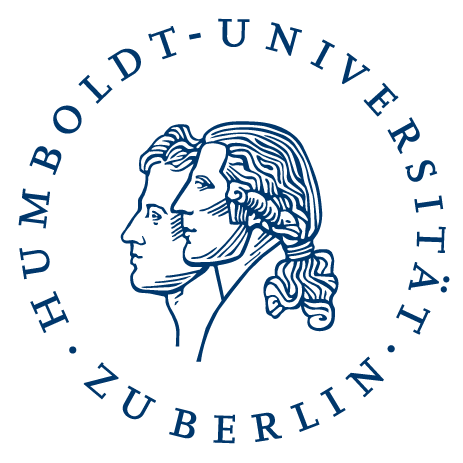Wolfgang Karl Härdle
Position: Professor
Discipline: Economics
Field of research: Statistics
Department: Wirtschaftswissenschaftliche Fakultät at Humboldt-Universität zu Berlin
Website: View here
Further reading: 5 questions to Wolfgang Karl Härdle and Alla Pethukina – C.A.S.E. computer museum at Humboldt-Universität zu Berlin
Photo: Courtesy of Wolfgang Härdle

1. Tell us a bit about yourself. How did you get to where you are today?
After my Abitur in 1972, I studied Mathematics at K.I.T. Karlsruhe. I attained my Dr. rer. nat. in Mathematics at Universität Heidelberg in 1982 and in 1988 my habilitation in statistics at Universität Bonn. In October 1989, I became professeur ordinaire at Université Catholique de Louvain, Louvain-la-Neuve, Belgium. Since November 1991 I have been at Humboldt-Universität zu Berlin, at first in the department of Mathematics as a part of a Weierstrass guest professorship that was offered to me in early 1989. In the summer semester 1992 I became the Chair of Statistics at the Wirtschaftswissenschaftliche Fakultät of HU Berlin. I’ve been the director of two Collaborative Research Centers (CRC 373, CRC 649) and currently I am the director of the Sino German International Research Training Group IRTG 1792 “High dimensional non stationary time series analysis”, a joint project with the Wang Yanan Institute for Studies in Economics, Xiamen University, China. My research focuses on dimension reduction techniques, computational statistics and quantitative finance. I have published widely, and my professional experience covers areas such as financial engineering, smart (specific, measurable, achievable, relevant, timely) data analytics, machine learning and cryptocurrency markets. I have created possibly useful and certainly innovative research instruments such as the financial risk meter, FRM, a quantlet repository and a cryptocurrency index, CRIX.
2. When did you first become aware of the role of gender in your research environment or at your work place at university?
In the ‘90s I noticed there were only/mostly men in the department I was working at. Since I believe that good research can only be done in mixed teams with a balanced variety of interests and experience, I started to ask young female researchers why they didn’t consider a career in academia and/or research. Their answer was that the path towards a successful career in the area of mathematics or economics was unclear and uncertain in Germany. The path from postdoc positions to junior professorships and finally to tenure (all within the framework of the German university system of that time) and the conditions for accessing professor or tenured positions were unclear for the persons I interviewed. Additionally, there’s the stereotype that female researchers are more risk averse, but this might be because they have not felt they have the space to experiment and be bold, since up until recently they were under a lot of scrutiny just for being female researchers and felt a lot of pressure not to make any mistakes.
3. What challenges have you encountered in academia regarding equal opportunities?
The challenges that I’ve noticed my fellow female researchers face relate to the above mentioned personnel allocation system: It is simply not possible to “invest” in promising careers in Germany. Hence, the career path from PhD to junior professorship to tenure and the uncertainty surrounding available positions is sometimes discouraging for women researchers and is not compatible with family life. Further, the hiring mechanics in German academia are disadvantageous for women for the very simple reason that the ranking of a person in hiring discussions is mostly linked to the number and quality of publications. Since women often take on the majority of care work in their families, they have significantly less time for writing publications. So the equation is not fair here for female researchers!
4. What has been your personal experience with equal opportunities offers? What have you taken away from them?
I strongly believe that there is great value in having a diverse academic and research community, both from a gender point of view, a cultural one and of course a scientific one. Offers such as the Hilda Geiringer (HG) lecture series (which we created in 2013) and the Hilda Geiringer scholarship are good ways to promote role models and support young researchers in a proactive way. Two past HG scholars are Maria Osipenko, who is now a professor at Hochschule für Wirtschaft und Recht in Berlin and Maria Grith, who is now a professor at Erasmus University in Rotterdam. We believe that the HG scholarship was actively beneficial to their career path. Furthermore, access to various specific courses (leadership, scientific project management, rhetoric, etc.) is also useful for female researchers. Support from the academic and research community for researchers with young children is also of value (such as the possibility to work from home, child care assistance, etc.), since unfortunately in such time intervals our colleagues sometimes lose touch with projects/people, and afterwards it is harder for them to step back into the game.
5. What do you think still needs to be done?
I believe that forming a support network for women for advice and the sharing of opportunities and collaboration could be beneficial to our research community. I would love to see more tenurable positions, i.e. more teaching and research professorships where young researchers can grow and find their individual profile. This would benefit the reputation of Humboldt-Universität zu Berlin and possibly make research more attractive to women. Additionally I would like to see the annual Hilda Geiringer Lecture continue to give extraordinary female scientists to platform. This way the lecture series will be able to appropriately commemorate Hilda Geiringer as an outstanding female mathematician and to highlight the contribution of women in science.





